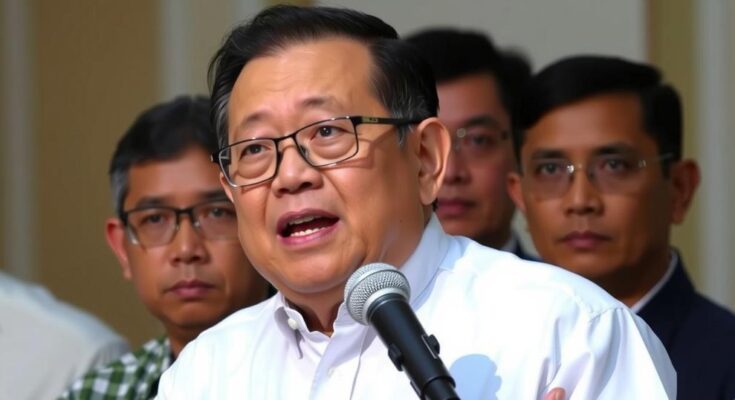President Prabowo Subianto’s plan to pardon corrupt individuals upon their return of stolen funds faces criticism, particularly from Lakso Anindito of the IM57+, who argues it may lead to increased corruption. Anindito claims this initiative could weaken deterrence against corrupt practices and encourages a focus on strengthening legal enforcement and asset recovery mechanisms instead.
On December 18, 2024, President Prabowo Subianto proposed pardoning corrupt individuals who return the proceeds of their crimes during a speech at Al-Azhar University in Cairo, Egypt. He suggested that forgiveness could provide an opportunity for repentance without exposing their identities to the public. This plan has drawn criticism from Lakso Anindito, Chairman of Indonesia Memanggil 57+ Institute (IM57+), who argued that such amnesty would not deter future corruption and might exacerbate the issue.
In his criticism, Lakso emphasized that offering amnesty could eliminate the deterrent effect that discourages corrupt activities. He underscored the concern that this approach fails to address the underlying factors contributing to corruption, which he described as a persistent issue. Instead, Lakso recommended that the government focus on enhancing asset recovery measures through the Asset Forfeiture Law and promoting judicial independence to prevent leaks in the anti-corruption fight, thus ensuring meaningful action rather than mere rhetoric.
Despite the backlash, Prabowo’s proposal seeks to create a pathway for corrupt individuals to rectify their wrongdoings by relinquishing stolen assets. He has championed this initiative as a necessary step towards addressing the persistence of corruption within Indonesia, although critics question its potential effectiveness in yielding significant reform or prevention of future offenses.
The topic of corruption remains a critical issue in Indonesia, where various administrations have struggled to effectively combat the rampant problem. Corruption undermines economic development and public trust in government institutions. The suggestion by President Prabowo to permit pardons for corrupt individuals who return stolen funds raises important ethical questions regarding accountability and the role of government in deterring illegal behavior. Critics contend that leniency without substantial reform may perpetuate the cycle of corruption, urging the need for comprehensive measures to ensure integrity within public service.
In conclusion, President Prabowo Subianto’s proposal to pardon corrupt individuals has ignited a significant debate. While it aims to offer a chance for repentance through the return of stolen assets, critics, including Lakso Anindito, argue that this could undermine efforts to combat corruption, potentially encouraging further malpractice. Greater emphasis on rigorous enforcement of anti-corruption laws and transparency may provide more effective solutions than amnesty, reflecting a need for systemic reforms within the nation’s legal framework.
Original Source: en.tempo.co




